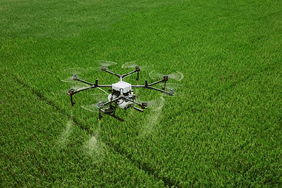Since December 2021, the IfLS, together with the DLR Project Management Agency, the Leibniz Institute for Agricultural Engineering and Bioeconomy (ATB) and the freelance biologist Ulrich Sander, has been involved in the BfN-funded "F+E" project (Testing and Development project) on "Species conservation in the light of modernised agricultural technologies". By means of an extensive literature and internet research, current, developing and future technologies on arable land and (potential) impacts on selected species of wild fauna are to be determined. The goal is a catalogue of possible measures to avoid identified risks.
The second Project Advisory Working Group (PAG) met online on 26 July 2022 and is composed of people with expertise in agricultural technology as well as those with knowledge of wildlife species. The PAG focused on the presentation of research results on the impacts of modernised techniques on selected species groups and their discussion with the experts.
Compared to existing threats to many species in the agricultural landscape, changes in technology are often of secondary importance. However, if species are already under strong pressure, the effects of specific techniques or processes can have a considerable additional impact in individual cases. It became clear that only a few publications deal specifically with the effects of concrete modernised techniques on certain species or species groups. For example, there is a need for research on the effects of mechanical weed control on soil organisms. Among other things, experts pointed out that recommendations for possible avoidance measures should take into account site dependency.
An external contribution came from Ms Tsvetelina Krachunova from the DigiAgrar project on the results and recommendations from this research project. According to this, digitalisation has the potential to support an ecological transformation of agriculture. So far, a central driver for the development and application of the technologies is the increase in efficiency. Biodiversity protection is currently not a primary goal of digitalisation in agriculture. In order for biodiversity protection to benefit from digitisation, strategic and political steering of the development and application of the technologies is necessary, including agro-ecological concepts and sufficient remuneration for services to promote biodiversity.
Contact persons at IfLS: Heike Nitsch (nitsch[at]ifls.de) and Jörg Schramek (schramek[at]ifls.de)
